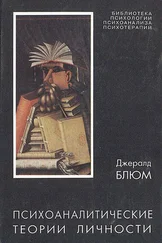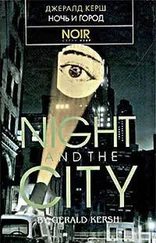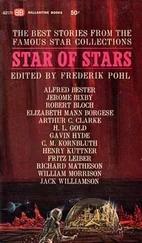The generosity of the criminal generally consists in the giving away of something that never was, or no longer is, his own property. A case in point is that of the robber and murderer, Rurik Duncan, whose brief career was bloody, fierce and pitiless, but whose last empty gesture was thick and sticky with sentiment which uplifted the heart of a nation. Duncan gave away his eyes to be delivered after his death. It was regarded as a vital act of charity—in effect, a ticket to Salvation—that this singularly heartless fellow gave permission for his eyes to be grafted onto some person or persons unknown.
Similar cases have been printed in the newspapers. As it is with most philanthropists who give their all, so it was with this man Duncan. Having no further need for what he donated, he made a virtue of relinquishing it—stealing from his own grave, conning to the bitter end. I knew a billionaire whose ears were stopped during his lifetime against any plea for charity; but who, when his claws relaxed in death, gave what he had to orphans. I knew a Snow Maiden of an actress whose body is bequeathed to Science—whatever that may be. Rurik will rank with these, no doubt, on the Everlasting Plane. And why not? All the billionaire had that he was proud of was certain sums of money and holdings in perpetuity, which he let go because he had to. All the actress had was something of merely anatomical interest. Rurik had his eyes. He prized these eyes, which were of a strange, flecked, yellowish color. He could expand or contract them at will, and seemed to look in a different direction while he was watching your every movement.
Before we proceed with this old story, I had better make some kind of resumé of Rurik’s career. He was born between the rocks and the desert, and was what, in my day, was called a “nuisance,” but what is now termed a “juvenile delinquent.” In my day physical force used to be applied to such, whereafter they generally lived to die in their beds; now they bring in psychologists, and quite right, too, because you can never tell where anything begins or ends. It is only in extreme cases that a Rurik, nowadays, is stopped in his career with a tingling jolt and—first and last restraint—the pressure of certain heavy leather straps.
In brief: Rurik killed chickens, maimed sheep, corrupted and led a mob of fourteen-year-old muggers; graduated to the rackets in which he was employed to his pleasure and profit in nineteen states of the Union; got hot, gathered about him two coadjutors and became one of the most formidable operators since Dillinger. He had extraordinary luck, and a really remarkable sense of timing—without which no bank robber can hope to succeed. Also he had a highly developed administrative capacity, a strategic knack coupled with what one of the reporters called “tactical know-how.” He could time a getaway to that split second in which a traffic light winks, letting a town throw up its own road-block. Rurik went plundering from bank to bank. It has been argued that with such superb dissimulation and timing he might have been a great actor or, perhaps, a great boxer. He might have been a copper baron, or oil king, or a banker, if only he had been born in the right place and at the right time; or literate, an ink-slinger. But he wasn’t. He was born on an eroded farm, and went with a certain brilliance to his convulsive end.
Oddly enough, Rurik was not given to vindictiveness or hate, in the generally accepted sense of these terms. Something was missing from him that makes society possible. Call it a soul, call it a heart, call it pity; but say that he wanted to be alone. And so he was, right to the end, with a high-backed chair all to himself, and a secret which he thought he would carry on his own, looked within himself, to a narrow place where nobody could touch him.
This secret was the whereabouts of certain buried treasure; I mean the location of $2,600,000 which he had stolen and hidden nobody knew where.
It was Rurik who stole the armored truck in Butte, Montana. At any moment now the pulp-writers will rehash the Rurik snatch as a “perfect crime.” The details are available in the files of all the newspapers in the world. It is sufficient to say, here, simply that Rurik and his two companions, later to be known as “The Unholy Three,” exquisitely timing and balancing the operation, got away with an immense payroll, together with nearly all the money that had been in the vault of a great bank, one day, and seemed to evaporate, truck and all. Timing , timing , timing , said the Sunday supplement criminologists; until one became sick and tired of the word. There was also some reference to Mr. G.K. Chesterton’s “The Invisible Man,” whose cloak of invisibility was the fact that he was too familiar, at a given hour, to appear conspicuously out of place.
Both schools of thought were right: the timers and the psychologists. At one moment there was an armored truck loaded with money. Next moment there were three or four bewildered men, loosely holding pistols they did not know what to point at; three streets full of traffic had stopped for the lights, and a great fortune was on its way to nowhere. Only one shot was fired, and that by a bank guard named Larkin, a retired police officer who, when the three bandits appeared, one of them with a gun in his hand, let fly with a short-barreled .38. As it later transpired, Larkin hit Rurik in the hip and so precipitated his capture. When the money is recovered, it is believed, Larkin will have good legal grounds for claiming a reasonable portion of the reward. The robbers, by arrangement, carried unloaded automatics—it seems that Rurik was very particular about this. So, in about as long as it takes a man to say: “Was that a backfire?”—one of the greatest robberies of our time was perpetrated, and there was great federal perplexity. Anywhere in the world a man can disappear, as Willie Sutton did, simply by being patient and keeping still. In Montana, even an armored truck can disappear. But how does two and a half million-odd dollars disappear?
They found the truck a certain distance out of town, empty. Where, then, was the paper money and the silver? Any moving-man will tell you that there is nothing heavier than paper, and any bank messenger will tell you that there is nothing more unwieldy than a bag of loose coin. He would be a very strong man indeed who could carry on his back even a quarter of a million dollars in small bills for the distance of fifteen city blocks. Throw in a bag or two of silver dollars to joggle the equilibrium, and put soft sand underfoot instead of paving stones, and no man can do it. A mule couldn’t. And here not two hundred and fifty thousand, but two and a half million dollars had been spirited away to some hiding place in the rocks!
Reconstructing the affair, the federal authorities arrived at the conclusion that Rurik and his men stopped the truck somewhere on the outskirts of Butte and hid the money in some place tantalizingly close to town, known only to themselves. Each took $8,000 for current expenses. The truck was driven about fifteen miles further, to a point near where Rurik had hidden a getaway car. Rurik took this car, and then they separated, arranging to meet when it was expedient to do so. But this is what happened: Little Dominic, trying to buy a used car in Helena, was recognized and died fighting it out with the state troopers. MacGinnis lost his way northward among the rocks and died there, in his pig-headed way, rather than give himself up. Only Rurik was taken alive, having fainted through loss of blood in a filling-station.
It is worthy of note that before he lost consciousness, his last words were: “Even maps you can’t trust,” and afterward raved of the illusion of space and the fallacy of distance, until they brought him to. The State pumped into Rurik the solid blood and the plasma of I forget how many honest men before he was brought to trial and convicted of the bank robbery. Here the FBI furnished the additional information that, under another name, Rurik was wanted in the state of New York for murder. So he was shipped back to New York, neatly patched up, and there after fair trial, found guilty and sentenced to death by electrocution. He took the sentence impassively, his only comment being: “A short life and a merry one—” though, since most of his short life had been spent hiding or running away, I find it difficult to concur with his opinion of merriment.
Читать дальше






